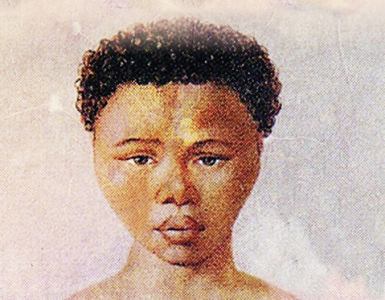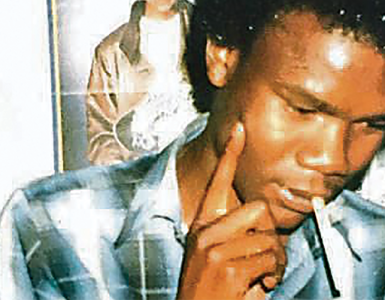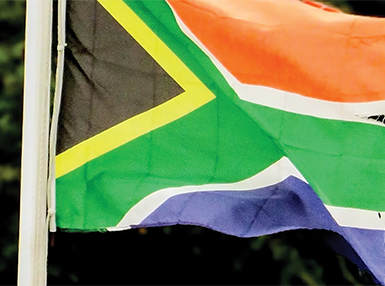PROBE: Three years ago, independent news outlet Justice Info published a raft of investigations undertaken around the world into sexual crimes in the Catholic Church. This year has been marked by important new revelations, particularly in Latin America and Europe. They confirm the scale of the crimes and the difficulty of responding to them with justice. We take a look at the most notorious situations.
By Clémentine Méténier
Investigations and revelations into sex crimes in the Catholic Church are spreading to more and more countries, even if victims’ associations often deplore their slowness or lack of concrete judicial or paralegal developments.
With tens of thousands of victims worldwide over several decades, sexual abuse by members of the Catholic Church is an unprecedented issue of justice.
In 2019, a report by the British NGO Child Rights International said Latin America was experiencing a “third wave” of revelations about abuse of minors in the Catholic Church, following the first wave in 2002 triggered by revelations in the United States newspaper Boston Globe and the wave that swept through several European countries, starting with Ireland in 2009.
In this report documenting sexual abuse in the Church in Latin America, the NGO proposes that, to deal with such widespread and systematic crimes, inspiration could be drawn from “the truth commissions set up after periods of dictatorship to probe human rights violations”.
While no commission of this kind yet exists on the continent, the NGO Ending Clerical Abuse (ECA) – the first transnational organisation focusing on international justice and accountability for sexual abuse in the Catholic Church – has been making the same plea since 2017.
Protection of priests
“One of the problems linked to clergy abuse is that — and this is very common in Latin America — the Church moves its priests to other countries to protect them. It is essential that we have independent commissions, made up of experts who understand how the Church works,” explains Mexican lawyer Adalberto Méndez López, ECA founder and coordinator of legal issues.
Chile and Argentina, where numerous scandals involving the Church have come to light, symbolise two of the continent’s disappointed hopes, he said in an interview with Justice Info. The most damning cases concern Peru and Mexico. Relative hope has come from Bolivia.
In Europe, the most spectacular revelations of this systemic, global scourge took place in Portugal, Spain and Switzerland.
Released on September 12 in Zurich, Switzerland, the “pilot project report on sexual abuse in the Roman Catholic Church in Switzerland since the mid-20th century” has triggered a series of reactions with as yet unknown consequences. It draws up a provisional list of 1 002 victims of sexual abuse committed by Catholic priests and members of the Swiss Church since 1950.
In France, Almost a year after the publication of a shocking report by France’s Independent Commission on Sexual Abuse in the Church, the reparations promised to victims are hardly materializing. Victims point to the flaws of the two reparation institutions promised by the Church, including long waiting periods, lack of transparency on compensation, and professional shortcomings.
On July 6 2020, the Vatican issued new (but non-binding) guidelines telling bishops to report cases of clerical sex abuse to civil authorities even where local laws don’t require it, as is the case in some countries, and in some American states.
“Once the allegations were made public in 2002, the Church could no longer be passive. Hundreds of priests have been defrocked or demoted, including at least 848 since 2004, with nearly 400 stripped of their position between 2011 and 2012 alone,” writes law professor Ludwin King.
According to the website bishop.accountability.org which records cases of sexual abuse by Catholic Church officials, US bishops alone reported receiving allegations of abuse of 18,565 children involving 6,721 priests for proven or alleged facts over the period 1950-2016 — or 5.8 percent of the 116,690 US priests between 1950 and 2016. Regarding Catholic bishops, the site has identified 78 Catholic bishops worldwide publicly accused of sexual crimes against children and 35 publicly accused of sexual misconduct against adults.
Omerta in Africa
“The Omerta in Africa on this issue is total and will remain so for a long time,” says Paul Samangassou, former director of Caritas Cameroon.
“Some people know that child abuse exists, but nobody talks about it because there is too much respect for the clergy, or even fear. It is better to be on their side because they have strong power among the population.”
Exceptionally, however, in October 2019 proceedings for child abuse were launched in Bangui, Central African Republic, against the Belgian priest Luk Delft. The prelate, who arrived in the country in 2015 to coordinate the activities of the Catholic NGO Caritas, had been convicted of similar acts in 2012 in Belgium.
According to Stéphane Joulain, “in Anglo-Saxon law there is no statute of limitations on such crimes. In Zambia, for example, Children Acts already existed and were renewed after independence.
Countries such as Kenya and South Africa addressed sexual abuse in schools at an early stage”. However, there are few legal proceedings. In South Africa, there have been 37 known cases of sexual abuse by Catholic priests since 2003, of which only seven have been investigated by the police, according to the French newspaper La Croix.
Since his election in 2013 Pope Francis has vowed to tackle such crimes in the Catholic Church, which span decades across the world. But United Nations Special Rapporteurs say the Catholic Church is still obstructing justice and must step up its measures to take on this scourge.
A UN statement on June 21 revealed that four Special Rapporteurs had written to the Holy See (Vatican diplomatic representation) in April this year urging accountability for perpetrators, reparation for victims, more transparency and an end to “obstructive practices”.
In June 2021, the United Nations made public that four of their special human rights rapporteurs have complained to the Vatican about the lack of accountability for perpetrators of child abuse and reparation for victims. They called for more transparency and an end to “obstructive practices”. There was no response from the Church.
In May 2018, the Pope apologized to the Chilean people for the mishandling of the paedophilia scandals. All the country’s bishops had resigned two weeks earlier, following the revelations of a report implicating 158 bishops, lay people and priests suspected of sexual abuse of 266 victims, including 178 minors. Six months later, more than 119 judicial investigations were opened in Chile for assaults committed since the 1960s.
During a visit to the World Meeting of Families in Ireland in August 2018, Pope Francis expressed his “shame” in a letter “to the People of God”: “The failure of Church authorities – bishops, religious superiors, priests and others – to adequately confront these despicable crimes has justly aroused indignation and remains a cause of suffering and shame for the Catholic community. I myself share these feelings.”
No church is spared from this shame. Looking at our map, it seems the continents of Africa and Asia may be untouched by these sexual abuse scandals. However, many testimonies indicate that while prosecutions are rare on these two continents, they are not spared the crimes.
Regarding the global phenomenon of sexual crimes within the Church, one of the world’s biggest religious institutions, the catalogue documenting sexual abuse in the Church in Latin America, included the following countries:
BOLIVIA
The only hope for such a commission came from Bolivia. In May 2023, in a letter addressed to Pope Francis, the Bolivian president asked that “all files, registers and information concerning allegations or facts of sexual abuse” committed in Bolivia be handed over to his country’s justice system. “Nothing like this has ever been undertaken on the continent,” says Méndez López.
This official request comes after revelations of abuse in the Bolivian Church by Spanish daily El Pais in April 2023. The Spanish Jesuit priest Alfonso Pedrajas, who died in 2009, was alleged to have abused more than 80 minors when he ran the John XXIII school in Cochambamba, in the centre-west of the country. Following these revelations, 35 members of the Catholic Church were reported to the Bolivian justice system by 17 alleged victims of sexual assaults, and are currently under investigation.
On 24 May 2023, the Bolivian bishops set up a National Listening Commission and a National Commission of Inquiry to shed light on the alleged cases. “We really thought that Bolivia would be what we needed in the region,” says Méndez López. But according to his information, these commissions remain partial: “What I have learned recently is that the Bolivian state does not want the victims to be part of the commissions. This is unacceptable, so they will certainly not see the light of day.” As in Peru, the Pope has sent the priest Bertomeu to report on programmes to prevent sexual abuse.
UNITED STATES
In April 2023, a report by the Maryland State Prosecutor revealed that at least 600 children had been abused by at least 150 members of the Catholic clergy between 1940 and 2002.
The US justice system denounced the “complicity of the Church”. This investigation into the Archdiocese of Baltimore was opened in 2018 following revelations by the Pennsylvania prosecutor that at least 1,000 children had been victims of paedophilia by more than 300 priests, covered up by the Church.
PORTUGAL
On 13 February 2023, the Portuguese Independent Commission, commissioned by the Bishops’ Conference and made up of six experts, published its report. It found that 4,815 victims had been sexually abused by members of the Portuguese Catholic Church over the past 70 years. Of the 500 testimonies collected by the Commission, 25 have been referred to the public prosecutor for investigation. Among other things, the experts recommended a change in the law that would extend the statute of limitations to 30 years after the event. On the release of this report, the president of the Bishops’ Conference confirmed the creation of a support body for victims and possible financial compensation.
- Justice Info is an independent media outlet published in French and English, covering justice initiatives in countries dealing with serious violence. It is owned by Fondation Hirondelle, based in Lausanne, Switzerland.





























